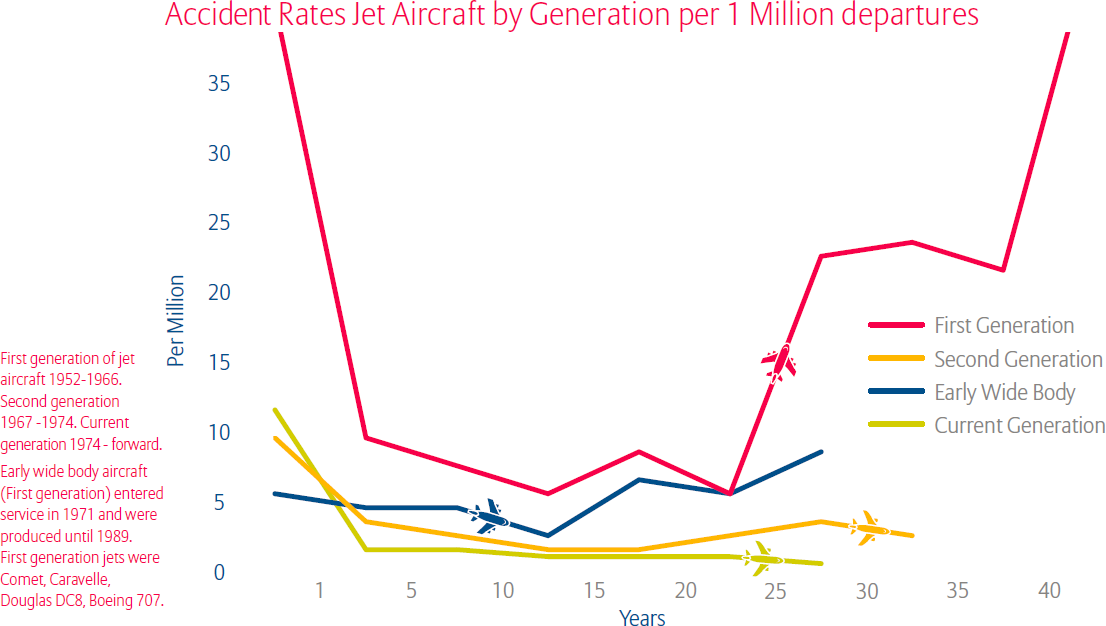Looking at the 2014 Allianz Global Aviation Safety Study for airliners:
The last generation of aircraft (1974 and forward, including A320 and B737) have a very low rate of accidents: less than 2 accidents per million of departures. This rate is better than all previous generations.
However this rate is lower only one to 2 years after the model has been on the market. Prior to this milestone, the rate is higher than previous generations, except the very first one.
Why is the first year rate of accidents so relatively high? It seems we have almost the same number of accidents before two years, than during the rest of the aircraft life.
Is there an obvious reason for having aircraft of the last generation apparently less safe at their life beginning than the two previous generations?

